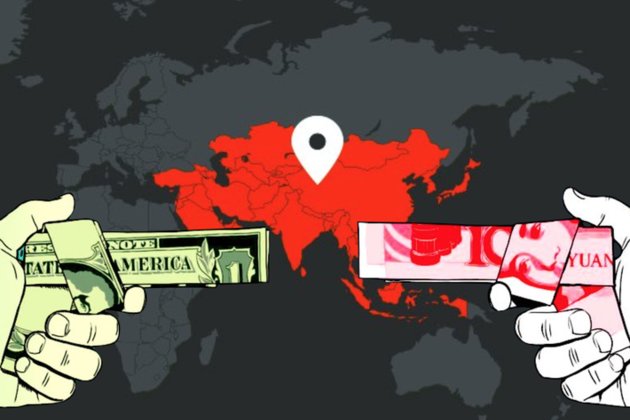2LT International News
U.S. offers economic security to Indo-Pacific region
Jul 31, 2018
WASHINGTON, U.S. – The American President Donald Trump’s inward looking policies, followed by his country’s withdrawal from the Trans Pacific Partnership trade deal left many American allies in the Asia Pacific region feeling abandoned and vulnerable.
Even though initially Trump repeatedly touted his friendship with the Chinese President Xi Jinping, his administration’s policy towards China turned hostile and punished with the world’s top two economies now being locked in a bitter trade war.
The Trump administration’s quest for domestic political victories, along with the U.S. President’s struggle towards building a legacy by resolving diplomatic disputes with historically tough American contemporaries like Russia and North Korea – has left the Indo-Pacific region largely ignored.
An even as America’s influence and role in the region waned, China continued its silent consolidation of power across the continent and the Pacific.
China, which has steadily enhanced trade and investment ties with all countries in the region over several decades, has emerged as a economic heavyweight throughout the Asia Pacific region.
The depth of China’s presence in the region has helped propel the country towards establishing an economic superiority that largely remains unchallenged.
The region’s economic dependence on China has allowed the country to expand its influence and power and get away largely unchallenged, whether dispute emerge over trade imbalances or even territorial disputes.
In what appeared as the Trump’s administration’s response to China’s growing clout in the region – the U.S. Secretary of State Mike Pompeo sought to woo the Indo-Pacific region on Monday, with the promise of economic security.
At an Indo-Pacific Business Forum at the U.S. Chamber of Commerce, Pompeo announced $113 million in new U.S. investments in the Indo-Pacific region.
The investment, Pompeo said, includes $25 million to promote digital connectivity, $50 million for energy projects, and $30 million for infrastructure.
Without naming China, Pompeo hinted at China’s investment policies under its “One Belt, One Road” plan and emphasized U.S. commitment to the region.
He stressed on the principles of freedom and openness and said, “With American companies, citizens around the world know that what you see is what you get: honest contracts, honest terms, and no need for off-the-books mischief. For us the Foreign Corrupt Practices Act is not just a law — it is a point of pride. Integrity in businesses practices is an essential pillar of our Indo-Pacific economic vision.”
The Trump’s administration’s Indo-Pacific plan, which has received a mention less than two times during the stretch of Trump’s time in power, was unveiled by Pompeo on Monday,
He said that America’s efforts in the Indo-Pacific region are aimed at heralding “a new era in U.S. economic commitment to peace and prosperity” in the region.
Further, citing the U.S. commitment of $113 million towards cybersecurity, the digital economy, energy and infrastructure spending – Pompeo said, “Economic security is national security.”
He pointed out that the U.S. is pursuing bilateral trade agreements in lieu of a regional deal.
Adding, “I know some are wondering about America’s role in the region in light of president Trump’s decision to pull out of the Trans-Pacific Partnership. While we work with our partners to craft better and higher-standard bilateral trade agreements, our companies are continuing to advance US economic interests by growing our presence in the region.”
Casting the U.S. as a trustworthy partner in the region throughout his talk, Pompeo even said that the U.S. “will never seek domination in the Indo-Pacific and we will oppose any country that does.”
Pompeo also said that as part of the Trump Administration’s efforts in the region, he would now travel to the Indo-Pacific region next week and would be bringing an invitation to partner with the U.S.
Pompeo said, “We remain committed to economic engagement in the Indo-Pacific region because of the national security benefits for the American people. Today I want to close by inviting any nation, and any business that wants those values enshrined in this region to partner with the United States government. A free and open Indo-Pacific is America’s chosen course, and we hope that it will be yours too.”
However, experts were quick to point out that the Trump administration sudden need to woo the region, especially by offering “economic security,” comes directly in response to China’s progress in implementing its ambitious project.
The Chinese President Xi Jinping is pacing ahead with his country’s ambitious ’One Belt, One Road strategy,’ which centers on pumping hundreds of billions of dollars into ports, rail lines and other projects across Asia, Europe and Africa.
The initiative involves dozens of countries and an estimated $1 trillion of mostly state-led infrastructure projects linking Asia, parts of Africa and Europe.
China is hoping that the project will spur demand for Chinese goods overseas and expand China’s influence in global affairs.







